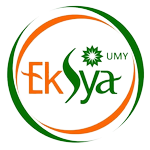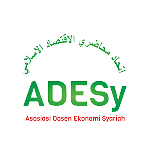A Prudential Assessment of Islamic Banking System and Sharia Governance Related to the Banks and Other Financial Institutions Act (BOFIA) in Nigeria
DOI:
https://doi.org/10.18196/jiebr.v3i1.67Keywords:
Islamic Financial Institution, Regulation, Sharia Governance, FRACE, ACE, BOFIAAbstract
A regulatory review of Islamic banking laws concept and practice in Nigeria under conventional banking regulatory laws need to be reviewed and investigated. Sharia Regulatory laws have provided sufficient laws and practices for Islamic Financial Institutions to be integrated into Nigeria's existing system of the non-interest bank and Islamic windows. In light of the above, establishing the Financial Regulation Advisory Council of Experts (FRACE), the Advisory Committee of Experts (ACE), the Sharia Advisory Board (SAB), and the Banks and Other Financial Institutions Act (BOFIA) to promote the Sharia Governance of Islamic Financial Institutions, businesses, and institutions in Nigeria. This employed cognate narrative and approach review to deduce and examine lacunae in the applicable laws and assess the scholarly perception of ethical financing in the Islamic Financial Institutions sector. The study employed Structural Equation Modeling (SEM). Consequently, the results revealed the positive relationship between the FRACE, ACE, SAB, and BOFIA in promoting regulatory and prudential assessment toward Sharia Governance of Islamic Financial Institutions in Nigeria. The application of laws and insufficient and inefficacious practice of its application generate an awkward practice of Islamic banking, and its windows in conventional banks and other Islamic financial Institutions are practically concerned and measured for Sharia suitability. Thus, establishment and regulatory laws will enhance Islamic Financial Institution practices and ensure equal treatment and great concern as conventional financial institutions in the country.
References
AbdulKareem, I. A., Mahmud, M. S., & AbdulGaniyy, A. (2022). Shariah Compliance Practice: An Analysis of Trends among Islamic Banks in Nigeria. International Journal of Business and Society, 23(1), 137-151.
Abikan, A. I., & Ahmad, I. B. (2017). Shariah Governance of Islamic Financial Institutions (IFIS): An Analysis of the Central Bank of Nigeria (CBN) Regulatory Guidelines. KIU Journal of Social Sciences, 3(1), 303-316.
Ahmed, I., Usman, A., Farooq, W. and Usman, M. (2022), "Shariah board, web-based information and branding of Islamic financial institutions", Journal of Islamic Marketing, Vol. 13 No. 3, pp. 717-739. https://doi.org/10.1108/JIMA-01- 2020-0027
Alam, M. K., Ab Rahman, S., Mustafa, H., Shah, S. M., & Hossain, M. S. (2019). Shariah governance framework of Islamic banks in Bangladesh: Practices, problems and recommendations. Asian Economic and Financial Review, 9(1), 118-132.
Anin Dwinta, V., & Rozikan. (2022). The Effect of Islamic Work Ethics and Affective Commitment on Quality of Work life and Turnover Intention of Shariah Bank. Journal of Islamic Economic and Business Research, 2(1), 90-103. https://doi.org/10.18196/jiebr.v2i1.52
Arslanian, H., & Fischer, F. (2019). The future of Finance: The impact of FinTech, AI, and crypto on financial services. Springer.
Atoi, N. V. (2018). Non-performing loan and its effects on banking stability: Evidence from national and international licensed banks in Nigeria. CBN Journal of Applied Statistics, 9(2), 43-74.
Avril, P. (2019). Regulation of political Finance in France. In Comparative Political Finance among the Democracies (pp. 85-95). Routledge.
Blind, K. (2016). The impact of regulation on innovation. In Handbook of innovation policy impact (pp. 450-482). Edward Elgar Publishing.
Calder, R. (2021). Shari'ah-compliant or Shari'ah-based? The Changing Ethical Discourse of Islamic Finance. ARAB LAW QUARTERLY, 35, 50-73.
Cho, M., & Chung, K. H. (2016). The effect of commercial banks' internal control weaknesses on loan loss reserves and provisions. Journal of Contemporary Accounting & Economics, 12(1), 61-72.
Dang, V. D. (2020). Do non-traditional banking activities reduce bank liquidity creation? Evidence from Vietnam. Research in International Business and Finance, 54, 101257.
Ding, X., Appolloni, A., & Shahzad, M. (2022). Environmental administrative penalty, corporate environmental disclosures and the cost of debt. Journal of Cleaner Production, 332, 129919.
Fatmawati, D., Ariffin, N. M., Abidin, N. H. Z., & Osman, A. Z. (2020). Shariah governance in Islamic banks: Practices, practitioners and praxis. Global Finance Journal, 100555.
Fernandez Lynch, H., & Taylor, H. A. (2022). How Do Accredited Organizations Evaluate the Quality and Effectiveness of Their Human Research Protection Programs?. AJOB Empirical Bioethics, 1-15.
Ferreira, A. (2021). Regulating smart contracts: Legal revolution or simply evolution?. Telecommunications Policy, 45(2), 102081.
Gilad, S., Maor, M., & Bloom, P. B. N. (2015). Organizational reputation, the content of public allegations, and regulatory communication. Journal of Public Administration Research and Theory, 25(2), 451-478.
Grassa, R. (2015), "Shariah supervisory systems in Islamic finance institutions across the OIC member countries: An investigation of regulatory frameworks", Journal of Financial Regulation and Compliance, Vol. 23 No. 2, pp. 135-160. https://doi.org/10.1108/JFRC-02-2014-0011
Hoffmann, T., & Prause, G. (2018). On the regulatory framework for last-mile delivery robots. Machines, 6(3), 33.
Jan, A. A., Lai, F. W., & Tahir, M. (2021). Developing an Islamic Corporate Governance framework to examine sustainability performance in Islamic Banks and Financial Institutions. Journal of Cleaner Production, 315, 128099.
Jan, A. A., Lai, F. W., & Tahir, M. (2021). Developing an Islamic Corporate Governance framework to examine sustainability performance in Islamic Banks and Financial Institutions. Journal of Cleaner Production, 315, 128099.
Kehinde, L. H., & Sharofiddin, A. (2021). The Level of Acceptance and Awareness of Takaful in Nigeria. Journal of Islamic Finance, 10(1), 46-58.
Khalil, H., Peters, M. D., Tricco, A. C., Pollock, D., Alexander, L., McInerney, P., ... & Munn, Z. (2021). Conducting high quality scoping reviews-challenges and solutions. Journal of clinical epidemiology, 130, 156-160.
Komijani, A., & Taghizadeh-Hesary, F. (2018). An overview of Islamic banking and Finance in Asia. Routledge Handbook of Banking and Finance in Asia, 505-518.
Lv, C., Shao, C., & Lee, C. C. (2021). Green technology innovation and financial development: Do environmental regulation and innovation output matter?. Energy Economics, 98, 105237.
Mahmud, M. S., AbdulKareem, I. A., Ali, M. O., Fadah, I., & Arifin, A. A. (2021, November). Shariah Governance in Islamic Financial Institutions in Nigeria: An Empirical Study. In International Conference on Management, Business, and Technology (ICOMBEST 2021) (pp. 168-179). Atlantis Press.
Muhammad, T. Duku, M. & Yakasai, U. M. (2020). Potential Customer’s Preference for Islamic Bank in North East, Nigeria. International Journal of Islamic Economics and Finance Research, 2(2 December), 76-87. Retrieved from http://ijiefer.kuis.edu.my/ircief/article/view/19
Muhammad, T., & Melemi, A. (2019). Profitability of Commercial Bank on Interest Rate Deregulation. Financial Risk and Management Reviews, 5(1), 1-9.
Muhammad, T., & Melemi, A. (2021). Assessment of 5Cs Relationship towards Credit Risk Management: Evidence from Islamic Banks. Journal of Islamic Finance, 10(1), 76-89.
Muhammad, T., & Salisu, A. (2019). Islamic Bank and Economic Growth in Nigeria and Malaysia Similarities. International Journal of Accounting, 4(22), 10-22.
Muhammad, T., Mamman, D., & Tangaza, M. A. (2019). Controversies and Challenges of Islamic Banking: Analysis of Regulatory Reform. Journal of Contemporary Research in Business, Economics and Finance, 1(1), 12-15.
Muhammad, T., Ngah, B. B., & Obad, A. S. F. M. (2022). Financial Exclusion in Northern Nigeria: A Lesson From the Developed Countries. AFEBI Islamic Finance and Economic Review, 7(01), 45-62.
Mustafa, D., Baita, A. J., & Usman, A. Y. (2018). Impact analysis of Islamic Finance on financial inclusion and economic growth in selected Muslim countries: Lessons for Nigeria. International Journal of Economics, Management and Accounting, 26(2), 393-414.
Mustapha, Z., Kunhibava, S., & Muneeza, A. (2019). Court referral and Nigeria's Financial Regulation Advisory Council of Experts (FRACE). ISRA International Journal of Islamic Finance, 11(2), 206-225.
Mustapha, Z., Kunhibava, S., & Muneeza, A. (2019). Court referral and Nigeria's Financial Regulation Advisory Council of Experts (FRACE). ISRA International Journal of Islamic Finance, 11(2), 206-225.
Mustapha, Z., Kunhibava, S., & Muneeza, A. (2019). Court referral and Nigeria's Financial Regulation Advisory Council of Experts (FRACE). ISRA International Journal of Islamic Finance, 11(2), 206-225.
Odeyinde, O., & BL, L. U. (2021). APPRAISAL OF COMPANIES AND ALLIED MATTERS ACT 2020. College of Management Sciences, Bells University of Technology, Ota, Ogun State, Nigeria, 116.
Olatunji, T. (2020). Advancing the Cause of Fintech in Nigeria through Regulation. The Gravitas Review of Business & Property Law, 11(4), 17-34.
Olayiwola, H. O. (2021). Islamic Banking Products and Economic Development in Nigeria: A Co-Integration Approach. Journal of Islamic Economic and Business Research, 1(2), 169–179. https://doi.org/10.18196/jiebr.v1i2.30
Said, L. R., Bilal, K., Aziz, S., Gul, A., Shabbir, M. S., Zamir, A., & Abro, H. (2021). A comparison of conventional versus Islamic banking customers attitudes and judgment. Journal of Financial Services Marketing, 1-15.
Sani, S.D. and Abubakar, M. (2021), "A proposed framework for implementing risk- based Shari’ah audit", Journal of Financial Reporting and Accounting, Vol. 19 No. 3, pp. 349-368. https://doi.org/10.1108/JFRA-02-2020-0041
Schefold, B. (2022). The Significance of Economic Knowledge for Welfare and Economic Growth in History. In Ancient Economies in Comparative Perspective (pp. 25-53). Springer, Cham.
Shaharuddin, A. (2020). Do islamic banks act ‘Islamic’during covid-19 pandemic?. The Journal of Muamalat and Islamic Finance Research, 3-12.
Tsatsaronis, K., Chui, M., Goel, T., & Mehrotra, A. (2022). The monetary-fiscal policy nexus in the wake of the pandemic. BIS Papers chapters, 122, 1-25.
Wani, A. S., & Dar, S. H. (2022). Prospects of Sharia Governance in Islamic Finance Industry: Jurisdictions, Standards, and Implications. Talaa: Journal of Islamic Finance, 2(1), 21-32.
Widarjono, A., Anto, M. B., & Fakhrunnas, F. (2020). Financing risk in Indonesian Islamic rural banks: do financing products matter?. The Journal of Asian Finance, Economics and Business, 7(9), 305-314.
Downloads
Published
How to Cite
Issue
Section
License
Copyright (c) 2023 Journal of Islamic Economic and Business Research

This work is licensed under a Creative Commons Attribution-NonCommercial 4.0 International License.
Journal of Islamic Economic and Business Research has CC-BY NC or an equivalent license as the optimal license for the publication, distribution, use, and reuse of scholarly work for non-commercial purpose. The non-commercial use of the article will be governed by the Creative Commons Attribution license as currently displayed on Creative Commons Attribution-NonCommercial 4.0 International License
Creative Commons License




